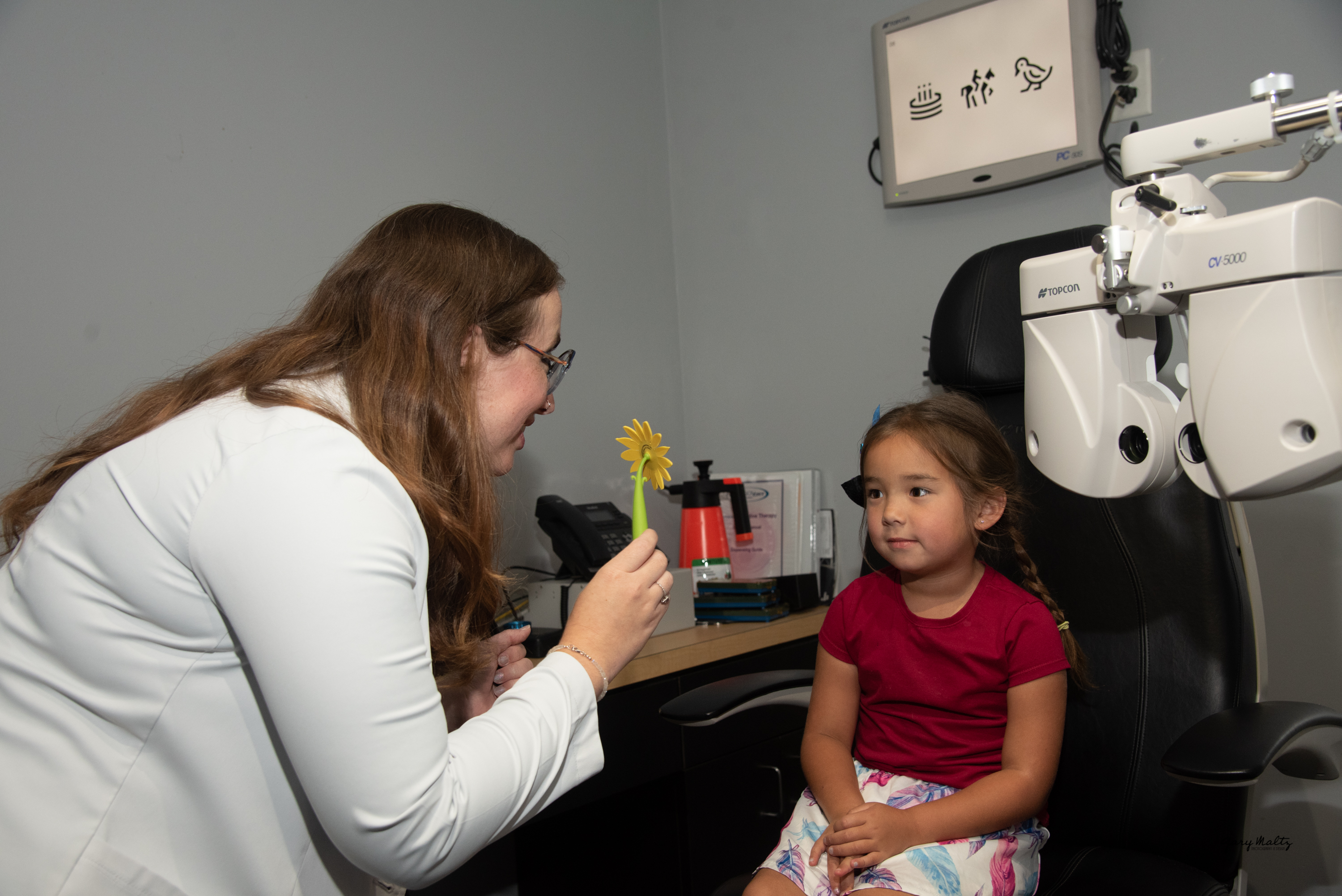Blog:Common Vision Problems in Children to Watch Out For As Recommended by Trusted Eye Doctors in Cypress, TX

Identifying vision problems in children is crucial for their overall development.
Visual acuity plays a significant role in learning and language development, and undiagnosed issues can sometimes lead to learning disabilities. Ensuring children receive comprehensive eye care is an important step in fostering their growth.
Early detection can make a noticeable difference in a child’s life, impacting their social interactions and academic success.
Keep reading to learn about the signs to watch for in infants, preschoolers, and school-aged children, and discover how regular eye exams can help safeguard their vision!
Spotting the Early Signs of Vision Problems in Infants
Recognizing the early signs of vision problems in infants is crucial for their overall development.
Frequent eye rubbing or excessive blinking often raises a red flag about potential discomfort or strain in their visual system. Another concern is a noticeable lack of eye contact or difficulty focusing on objects, which can be indicative of weak muscle control in their eyes or a possible issue with binocular vision.
Additionally, poor tracking of moving objects can signal that an infant may struggle to process visual information effectively. Understanding these signs helps ensure timely and appropriate eye care and eye examinations, providing a clearer path toward a healthier vision for our children.
What to Notice in Preschoolers for Vision Issues
For preschoolers, certain behaviors can indicate potential vision issues that may have stemmed from factors like birth weight or medication taken by the mother during pregnancy.
For instance, if your child is sitting unusually close to the television or holding books too close to their face, it raises a concern about their visual acuity. Another red flag is squinting or tilting their head in an attempt to see clearly; these actions may suggest underlying vision problems that require attention.
Furthermore, if your child struggles to concentrate on visual tasks, it could be a sign of a more significant issue that might benefit from a thorough evaluation. Regular pediatric eye exams play a vital role in identifying these problems early, potentially leading to solutions such as contact lenses or other corrective measures.
Identifying Vision Issues in School-Aged Children
For school-aged children, signs may point to vision problems affecting their confidence and overall learning experience.
Children avoiding reading or other close visual work can indicate discomfort or difficulty focusing on printed materials. Complaints about headaches or eye strain further emphasize the need for attention to their visual health.
Additionally, children struggling to see information on the chalkboard or appearing to have blurred vision during lessons can hinder their ability to engage fully in the classroom. Regular eye exams become crucial at this stage to address these issues, ensuring that they maintain proper eye contact and develop the peripheral vision necessary for academic success.
Behavioral Signs That May Indicate Vision Problems
Certain behavioral signs might indicate underlying vision issues affecting their daily lives.
Decreased performance in school can often be a subtle hint of a child's struggle with their eyeglass prescription or difficulties in processing visual information, further compounded by challenges in color vision.
Some children exhibit a short attention span for their age, which may be linked to how they perceive visual tasks, leading to distractions and incomplete assignments. Additionally, frustration when encountering visual challenges, whether in reading or other activities, can signal that a child requires comprehensive eye exams to pinpoint any concerns.
Acknowledging these behaviors is crucial in ensuring that your kids receive the proper eye care they deserve as they navigate through preschool and beyond.
The Role of Regular Eye Exams in Early Detection
Understanding the value of regular eye exams for children cannot be overstated.
These assessments play a critical role in identifying vision problems early on, which can significantly affect a child's development. The real benefit lies in knowing how frequently your child should undergo these evaluations; for instance, different age groups have different needs.
When you take your child to an eye exam, you have certain expectations about what will happen during the visit, such as the types of tests that will be conducted and how they ensure a thorough assessment of your child's visual health.
By staying informed about these aspects, you can better advocate for your child’s eye care needs and contribute to their overall well-being.
The Importance of Pediatric Eye Exams
Pediatric eye exams are essential for catching vision problems early in children.
These evaluations help identify conditions that might not be apparent during regular activities, ensuring that any issues are addressed before they can impact vital aspects of a child's life, such as learning and social interaction.
By prioritizing these exams, you can take proactive steps in safeguarding your child’s visual health, ultimately paving the way for a brighter future.
Conclusion
Identifying vision problems in children is crucial for their development and overall well-being. Good eyesight is critical for a child's life and we know that schools demand intense visual involvement. This is one of our strong beliefs that is why one of the services that TSO Champions offers is pediatric eye exams.
By recognizing key signs such as eye rubbing, difficulty focusing, and trouble tracking objects, parents can take proactive steps toward securing necessary eye care.
Regular eye exams play an essential role in diagnosing potential issues early, ensuring children receive appropriate interventions. Prioritizing these evaluations ultimately supports children's learning experiences and enhances their quality of life.
Your child's vision is essential to their development and success.
Schedule a pediatric eye exam with TSO Champions today to ensure they receive the best care possible.
Call us at (281)-440-5887 or make an appointment online to secure your child's eye health and future!



